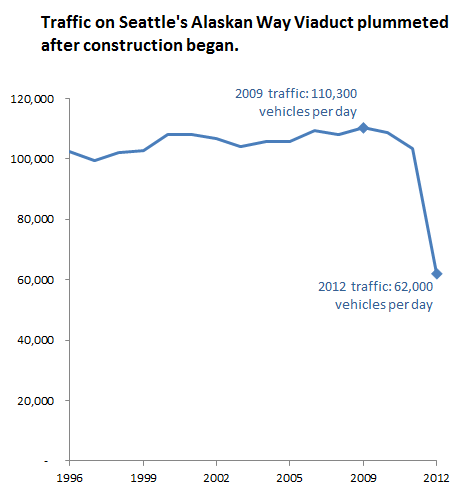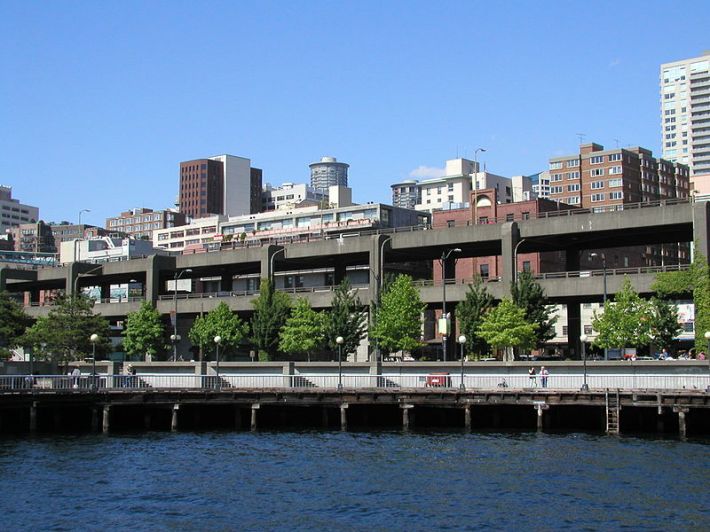
For months now, the largest tunnel boring machine in the United States has been broken down under the city of Seattle. Meanwhile, traffic on the highway that the tunnel is supposed to replace has plummeted, raising more questions about whether the project is worth the enormous expense.

The state of Washington intends to spend $3.1 billion to replace the Alaskan Way Viaduct -- an elevated double-decker highway right by the waterfront -- with an underground highway tunnel. But Bertha, the tunnel boring machine, is stuck a thousand feet into its path and will take months to get running again, if the state can get it running again at all.
Meanwhile, Clark Williams-Derry at regional think tank Sightline has made an amazing discovery: Traffic on the viaduct has plummeted by 48,000 vehicles per day in the last three years, or 44 percent, raising questions about whether this awesomely expensive undertaking is needed at all.
The reason for the traffic drop? A lot more people are taking buses. Some have avoided driving because of construction delays. Of those who are still driving, some have shifted to surface streets. Combine that with the fact that, across America, driving is declining in general -- and maybe Seattle doesn't need to replace this highway after all.
Williams-Derry puts it like this:
Nobody knows if Bertha will ever get moving again, let alone complete her job. But given these figures, maybe it doesn’t matter. Seattle has seamlessly adapted to losing the first 48,000 trips on the Viaduct. No one even noticed. No one even noticed that 40 percent of the Viaduct’s traffic just disappeared! Could accommodating the loss of another 62,000 be that hard if we, I don’t know, tried even a little?





